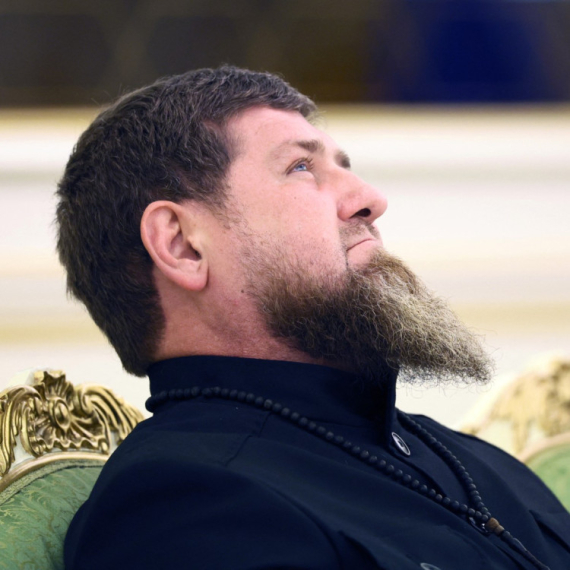Commission warns: Parties have too much power
The Venice Commission expressed strong criticism of the planned changes to the Serbian law on members of the country's parliament, a Belgrade newspaper reports.
Tuesday, 05.04.2011.
11:52

The Venice Commission expressed strong criticism of the planned changes to the Serbian law on members of the country's parliament, a Belgrade newspaper reports. Serbia responded by saying that "there is not enough political will for all the changes to take place", according to reports. Commission warns: Parties have too much power Daily Vecernje Novosti writes today that the commission's objections to the proposed changes to the Law on Election of MPs expressed criticism that they are "not in line with democratic principles". The Venice Commission report states that the proposal to abolish blank MP resignations, at the same time preventing MPs from joining different groups in parliament "is not according to the European rules of the game". Political parties in Serbia are also found to have excessive influence on institutions, with "the excessive role of parliament during the appointment of the judiciary workers" given as one example. The report said that this practice increases the risk of creating a system where all functions are divided between parties. The Venice Commission also criticized the plan of the authorities to have 50 percent of MPs elected from the election ticket, while the remaining 50 percent would be appointed by parties, and added that "in mid or long-term", the article in the country's Constitution that says an MP is entitled to return his mandate to the party "would have to be change". The daily writes that Serbia was urged to make sure that voters are aware which MPs would be elected before they head to the polls, and that only those candidates who top the lists and who win the most votes in their constituencies should actually be given seats in the country's parliament. "Random personnel combinations based on 'friendly ties' - and taking place after the voting - are not allowed. The citizens must have the names of all 250 candidates on the ballots," writes the newspaper. According to this, Serbia's response that "there is no consensus for fundamental reforms of the political system" has not been accepted. Parliament Speaker Slavica Djukic-Dejanovic told Vecernje Novosti that the Venice Commission objections would be taken into account as the final version of the bill is drafted, and that the law would be in the procedure soon. "We have proposed abolishment of blank resignations, as they offer possibilities of mandate manipulation, but MPs would be left the right to decide whether to hand their mandates back to their parties," said she. "The Constitution says that, under conditions determined by law, an MP is free to return the mandate to his MP group. Also, when we said there was no political will to change the political system, we did not have reforms in general in mind, but only some issues." The first test of the authorities' readiness to take into account the recommendations of the Venice Commission will come as soon as next week, when the draft Law on Financing of Political Parties will likely make it to the government agenda - after passing two supervisions by the commission. A view of the Serbian parliament (Tanjug)
Commission warns: Parties have too much power
Daily Večernje Novosti writes today that the commission's objections to the proposed changes to the Law on Election of MPs expressed criticism that they are "not in line with democratic principles".The Venice Commission report states that the proposal to abolish blank MP resignations, at the same time preventing MPs from joining different groups in parliament "is not according to the European rules of the game".
Political parties in Serbia are also found to have excessive influence on institutions, with "the excessive role of parliament during the appointment of the judiciary workers" given as one example.
The report said that this practice increases the risk of creating a system where all functions are divided between parties.
The Venice Commission also criticized the plan of the authorities to have 50 percent of MPs elected from the election ticket, while the remaining 50 percent would be appointed by parties, and added that "in mid or long-term", the article in the country's Constitution that says an MP is entitled to return his mandate to the party "would have to be change".
The daily writes that Serbia was urged to make sure that voters are aware which MPs would be elected before they head to the polls, and that only those candidates who top the lists and who win the most votes in their constituencies should actually be given seats in the country's parliament.
"Random personnel combinations based on 'friendly ties' - and taking place after the voting - are not allowed. The citizens must have the names of all 250 candidates on the ballots," writes the newspaper.
According to this, Serbia's response that "there is no consensus for fundamental reforms of the political system" has not been accepted.
Parliament Speaker Slavica Đukić-Dejanović told Večernje Novosti that the Venice Commission objections would be taken into account as the final version of the bill is drafted, and that the law would be in the procedure soon.
"We have proposed abolishment of blank resignations, as they offer possibilities of mandate manipulation, but MPs would be left the right to decide whether to hand their mandates back to their parties," said she. "The Constitution says that, under conditions determined by law, an MP is free to return the mandate to his MP group. Also, when we said there was no political will to change the political system, we did not have reforms in general in mind, but only some issues."
The first test of the authorities' readiness to take into account the recommendations of the Venice Commission will come as soon as next week, when the draft Law on Financing of Political Parties will likely make it to the government agenda - after passing two supervisions by the commission.


























































Komentari 2
Pogledaj komentare